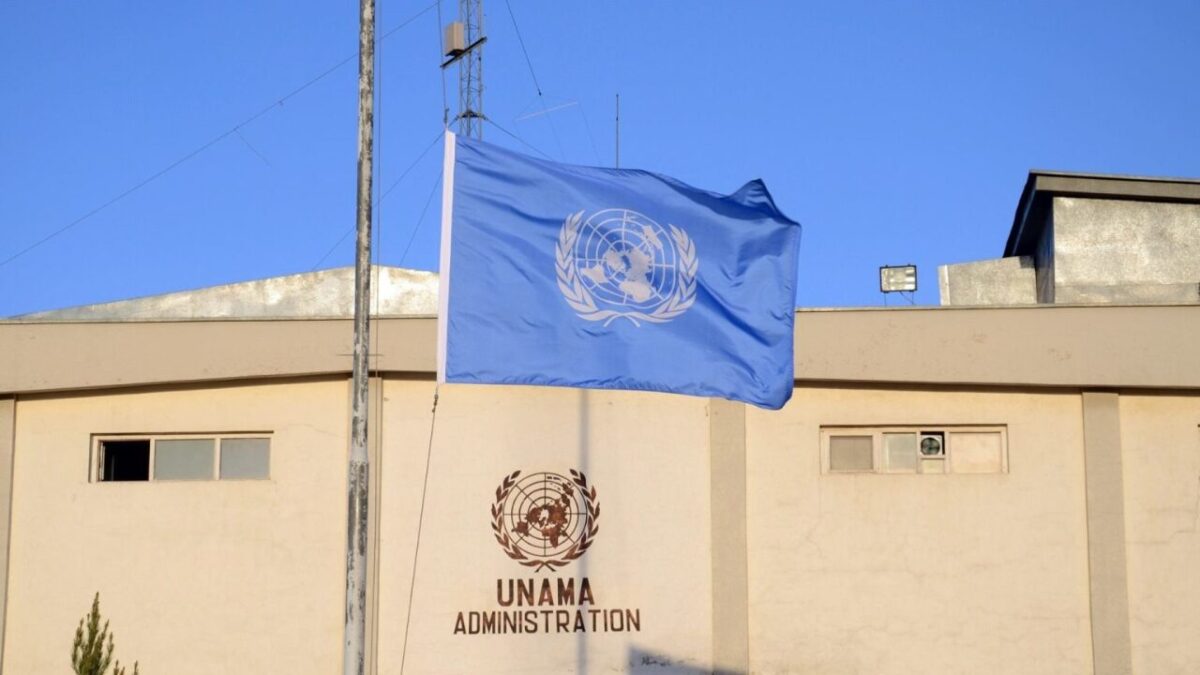The UN Assistance Mission in Afghanistan (UNAMA) on Thursday expressed deep concern over new media restrictions imposed by the Taliban, warning that the rules will further shrink press freedom and intensify self-censorship among journalists.
In a statement, UNAMA said the latest directive formalizes existing restrictions on political content in Afghanistan’s media and represents a significant escalation in control over public discourse.
“UNAMA is deeply concerned by the de facto authorities’ new media directive,” the mission said. “It formalizes existing restrictions on political dialogue — including pre-approval of content and commentators — and increases fear and self-censorship in an already constrained media environment.”
The directive, issued by the Taliban’s Ministry of Information and Culture, prohibits political debate and critical analysis in television and radio programs. Media outlets are now required to submit their topics, guests, and viewpoints for prior approval before airing political content.
The regulation, titled “Policy on the Management of Political Programs in Afghanistan,” mandates that all print, broadcast, and digital media outlets provide daily lists of planned topics and proposed guests to a government oversight committee. Even previously approved commentators must receive fresh clearance for each appearance.
In addition, political analysts must hold a Taliban-issued identification card from the Taliban’s Directorate of Publications and are prohibited from expressing views that contradict official policy. The rules also require analysts to demonstrate allegiance to what the Taliban describe as “national and Islamic values.”
Taliban have defended the restrictions as necessary for “preserving Islamic principles, strengthening national unity, and preventing sectarian or ethnic division.” The directive also claims to promote “fact-based reporting” and discourage “propaganda.”





